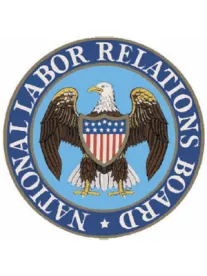In a recent reversal by the NLRB, the Board held that the judge had inappropriately deferred to an arbitration award. Verizon California, Inc., 364 NLRB No. 79 (Aug. 19, 2016). The arbitrator had found that an employee was not entitled to Weingarten rights (the right to have union representation present) during a telephone call with his supervisor, but the Board held otherwise.
The employee in this case was a field technician with Verizon who installed and repaired communications equipment. Thus, he primarily worked away from a traditional office and spent a large amount of time driving to and from jobs. As a result, the employer maintained work rules that required technicians to call their managers if a job took a long time (a “long duration job”). The employee had recently been disciplined for failing to follow this rule, and he was put on a performance improvement plan and warned of further discipline if he failed to follow the rule.
Soon after the discipline, the employee’s supervisor was preparing her daily reports and observed that the employee had made two stops before reporting to a job and that he failed to report a long duration job. The supervisor needed an explanation for the two stops in order to complete her report, so she called the employee. He told her that he did not feel comfortable discussing the matter with her without a union representative. The supervisor refused and suspended the employee for refusing to answer her questions, and the union subsequently filed a charge for denying the employee his right to union representation during an interview pursuant to Weingarten.
The supervisor testified that she frequently called technicians to obtain explanations for their stops. Indeed, the supervisor’s own daily reports required that she include the explanations in order to complete them. However, the supervisor’s notes stated that she called the employee to explain the long duration job pursuant to the PIP – but also described the call as “just normal conversation.” While the employee admitted that he had received similar calls from the supervisor in the past, he also testified that he was concerned about this call due to his PIP. The Board, in reversing and refusing to defer to the arbitration award, held that the arbitration misappliedWeingarten. The Board relied on the fact that the employee had been counseled on the very work rule at issue in the week leading up to the phone call. In addition, the Board said, based on the supervisor’s notes, there was no dispute that she called the employee not only to complete her reports but also to ask about the work rule violation.
Although there was evidence that indicated the call was both a routine part of the job and a follow up to employee counseling, the Board focused on how a reasonable employee would perceive the situation. The Board relied on objective evidence instead of subjective intentions, such as the recent PIP and counseling session as well as the supervisor’s failure to advise the employee that no discipline would result. The lesson learned from this case is that documented evidence – i.e. supervisor notes – will likely carry the day when there is a difference of opinion or perception about what occurred in the workplace. Employers should always document carefully and accurately when it relates to employee discipline.




 />i
/>i

